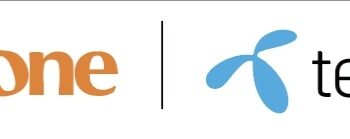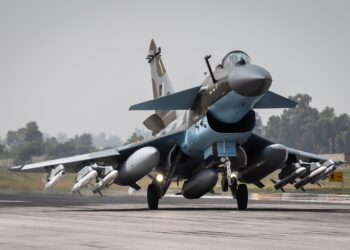Islamabad – Advisor to the Prime Minister on Political Affairs, Rana Sanaullah, issued a stern warning to the Pakistan Tehreek-e-Insaf (PTI), asserting that if the party’s upcoming protests fail to remain peaceful, the government will take strict legal action to ensure law and order.
In a statement made to the media, Sanaullah emphasized the importance of maintaining peace and discipline during demonstrations. “Peaceful protest is a democratic right, but if PTI’s protest crosses the boundary of peace and turns violent, then the law will take its course,” he warned. His statement comes amid escalating political tensions in the country following PTI’s ongoing criticism of the ruling coalition.
Context: Rising Political Tensions and Senate Elections
Rana Sanaullah made these remarks shortly after meeting with Maulana Fazlur Rehman, chief of Jamiat Ulema-e-Islam-Fazl (JUI-F), to discuss the upcoming Senate elections in the Khyber Pakhtunkhwa (KP) Assembly. The discussions centered around political strategy and collaboration between government allies.
“We presented our reports and observations to Maulana Fazlur Rehman, and he shared his views on them,” said Rana Sanaullah. “Our goal is to use our votes collectively in the Senate elections.”
The collaboration between the ruling Pakistan Muslim League-Nawaz (PML-N), JUI-F, and other allied parties appears to be aimed at countering PTI’s influence in the KP Assembly, where the Imran Khan-led party maintains a strong foothold.
PTI’s Protests and Allegations of Destabilization
Rana Sanaullah also criticized PTI’s protest strategy, accusing the party of deliberately seeking to destabilize the country. “PTI wants chaos and anarchy. Their politics thrive on confrontation and disruption,” he said.
The former Interior Minister argued that PTI must reevaluate its approach if it genuinely wants a political dialogue. “If PTI is serious about negotiations, they must first abandon their confrontational attitude. You cannot engage in talks while threatening the democratic process,” he remarked.
PTI, under the leadership of Imran Khan, has announced a series of nationwide protests and public gatherings, demanding fresh general elections and decrying what it describes as the “unconstitutional” actions of the current government. These protests have raised alarms over potential civil unrest and political instability.
The Legal Boundaries of Political Protest
According to constitutional and legal experts, while peaceful assembly and protest are guaranteed under Article 16 of the Constitution of Pakistan, the right is not absolute. The state can impose reasonable restrictions in the interest of public order and national security.
Rana Sanaullah reaffirmed this legal framework, saying, “No party, no matter how popular, is above the law. The Constitution allows for peaceful protest but does not tolerate incitement to violence or attempts to subvert the state.”
The government’s stance is that law enforcement agencies will be instructed to intervene if any protest turns into a threat to public peace or security. Interior Ministry officials have already hinted at preemptive security measures, including city-wide monitoring and police deployments.
PTI’s Past Protests and Government’s Response
The PTI has a long history of street protests, sit-ins, and rallies, most notably the 2014 dharna (sit-in) in Islamabad, which lasted over four months. That protest had seen periods of tension, clashes with police, and the occupation of high-security areas, including the Red Zone.
In May 2022, PTI attempted another long march to the federal capital, which led to violent encounters with police, road blockades, and widespread disruption.
The government’s policy under the PDM-led coalition and now under the current setup has evolved to emphasize zero tolerance for violent protest.
Calls for Political Dialogue Amid Polarization
Despite the strong warning, Rana Sanaullah did not rule out the possibility of dialogue, provided PTI alters its tone and tactics. “Our doors are not closed to talks, but they must be sincere and constructive,” he added. “No negotiation can be held under pressure or threats.”
Analysts believe that political dialogue between PTI and the government is essential to deescalate tensions and ensure a stable democratic environment. However, mutual distrust continues to be a major obstacle.
JUI-F’s Role and Alliance Building
The involvement of Maulana Fazlur Rehman and his party JUI-F reflects the ruling alliance’s intent to consolidate its position ahead of important legislative decisions, including Senate elections and potential constitutional reforms.
JUI-F has traditionally been a strong ally of PML-N and the PPP in resisting PTI’s political campaigns. The party has often acted as a key negotiator in times of political crisis, as seen during the no-confidence motion against Imran Khan in 2022.
Implications for Senate Elections in KP
Senate elections in Khyber Pakhtunkhwa are critical as PTI dominates the provincial assembly, giving it leverage in sending members to the upper house. However, due to the ongoing standoff between the Governor and the KP Assembly speaker, there have been legal and procedural hurdles in the election process.
Rana Sanaullah’s meeting with Maulana Fazlur Rehman likely aimed at finding ways to navigate these challenges and ensure maximum representation for the ruling alliance in the Senate.
Conclusion: Will PTI Change Its Approach?
Rana Sanaullah’s message to PTI was loud and clear: engage in peaceful and lawful political activity or face the consequences. The coming weeks will be crucial in determining whether PTI takes this warning seriously or chooses to continue its confrontational politics.
As political temperatures rise and elections draw closer, the need for political maturity and dialogue becomes even more urgent. The government has indicated its willingness to engage but has set clear boundaries: any attempt to disrupt public order will be met with legal resistance.
Whether this confrontation turns into meaningful dialogue or escalates into street-level agitation remains to be seen. What is clear is that the political future of Pakistan hinges on how responsibly its leading parties behave in the coming days.

























